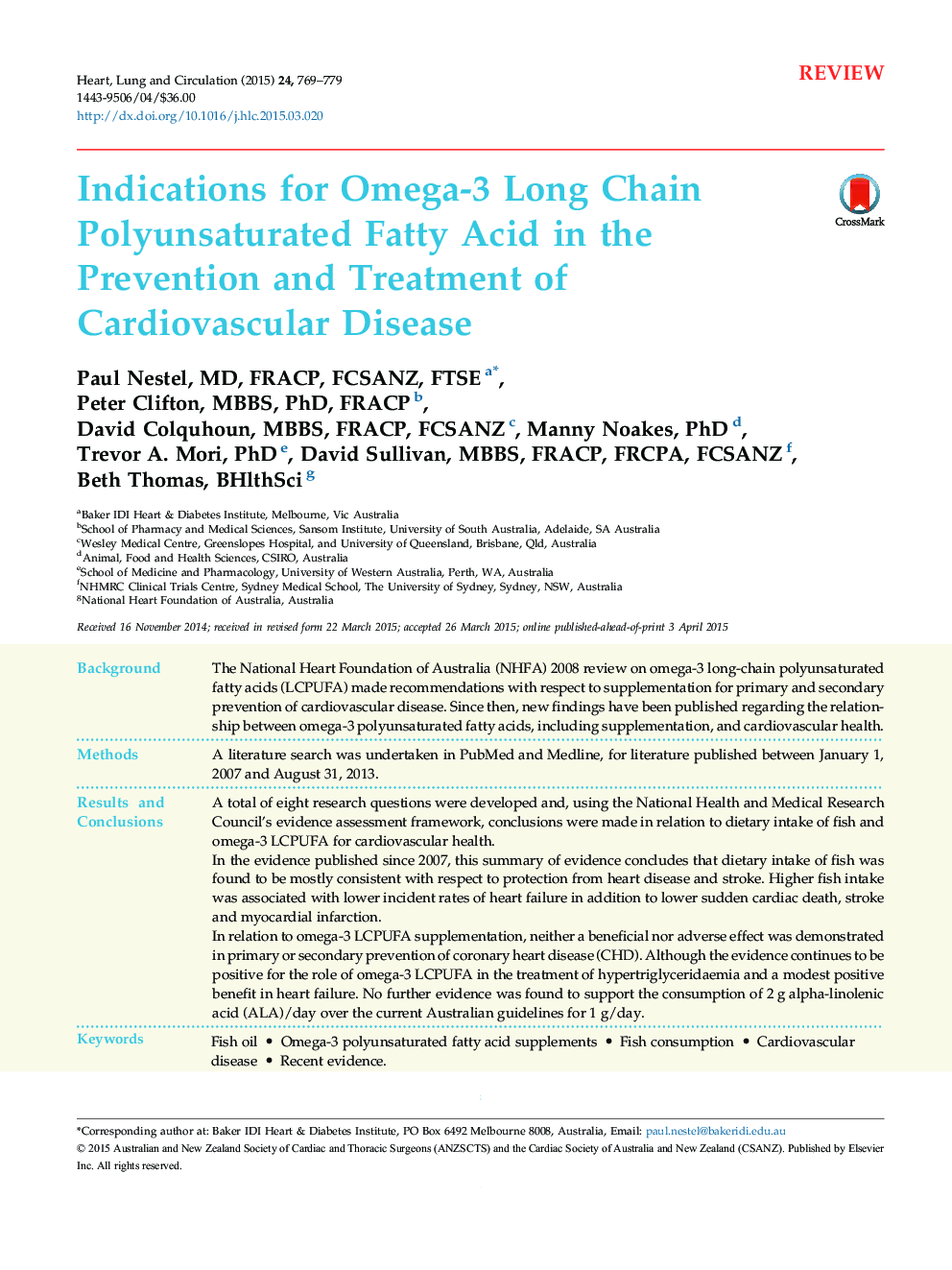| Article ID | Journal | Published Year | Pages | File Type |
|---|---|---|---|---|
| 2917967 | Heart, Lung and Circulation | 2015 | 11 Pages |
BackgroundThe National Heart Foundation of Australia (NHFA) 2008 review on omega-3 long-chain polyunsaturated fatty acids (LCPUFA) made recommendations with respect to supplementation for primary and secondary prevention of cardiovascular disease. Since then, new findings have been published regarding the relationship between omega-3 polyunsaturated fatty acids, including supplementation, and cardiovascular health.MethodsA literature search was undertaken in PubMed and Medline, for literature published between January 1, 2007 and August 31, 2013.Results and ConclusionsA total of eight research questions were developed and, using the National Health and Medical Research Council's evidence assessment framework, conclusions were made in relation to dietary intake of fish and omega-3 LCPUFA for cardiovascular health.In the evidence published since 2007, this summary of evidence concludes that dietary intake of fish was found to be mostly consistent with respect to protection from heart disease and stroke. Higher fish intake was associated with lower incident rates of heart failure in addition to lower sudden cardiac death, stroke and myocardial infarction.In relation to omega-3 LCPUFA supplementation, neither a beneficial nor adverse effect was demonstrated in primary or secondary prevention of coronary heart disease (CHD). Although the evidence continues to be positive for the role of omega-3 LCPUFA in the treatment of hypertriglyceridaemia and a modest positive benefit in heart failure. No further evidence was found to support the consumption of 2 g alpha-linolenic acid (ALA)/day over the current Australian guidelines for 1 g/day.
